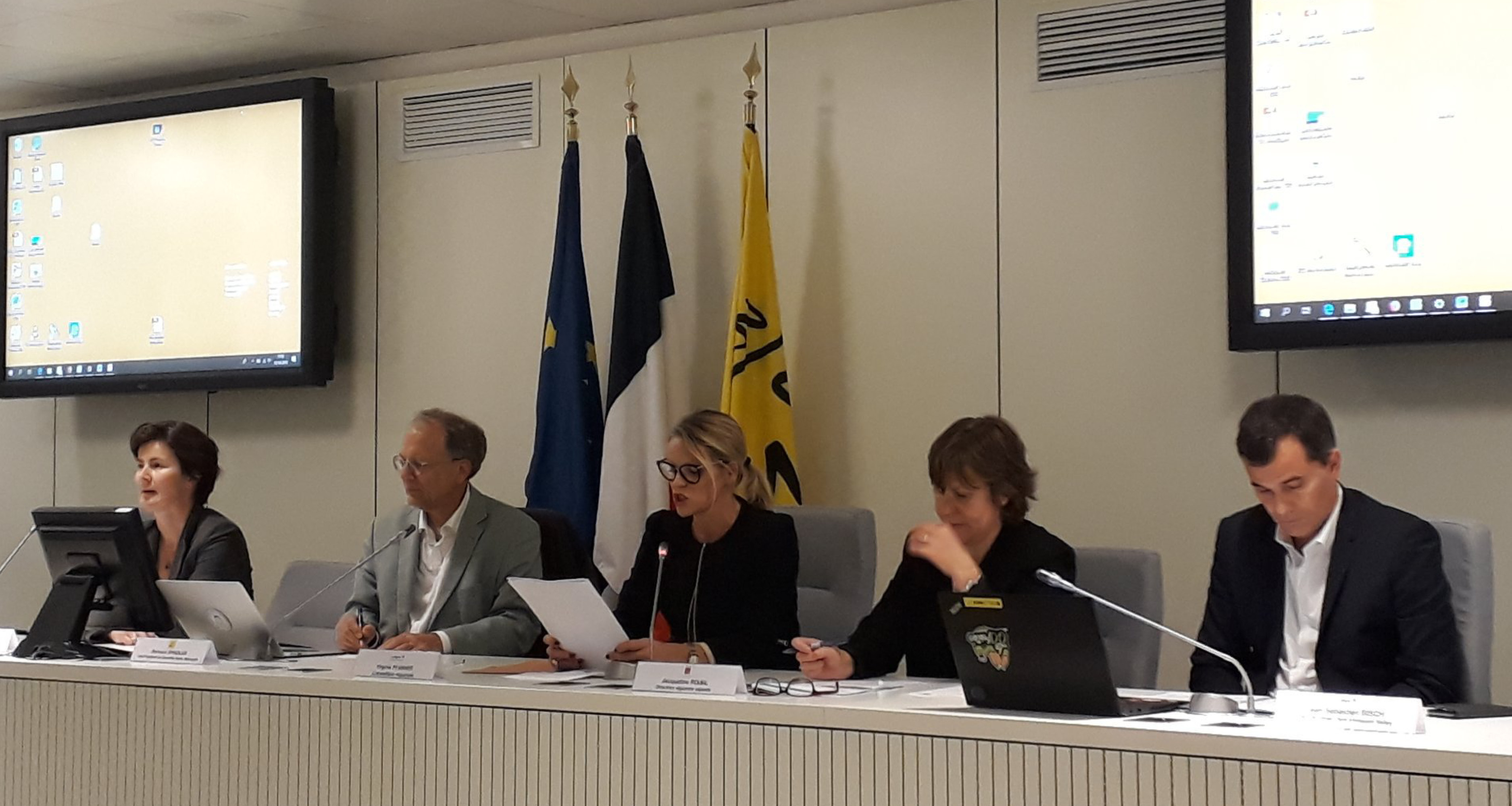
On October 10th, we took part in the launch of the ZEV zero-emission mobility deployment program for the Grenoble metropolis. Event hosted by Grenoble Alpes Métropole.
This ambitious Zero Emission Valley project, initiated and supported by the Auvergne Rhône Alpes Region, will enable the short-term deployment (2023) of the Lyon, Grenoble and Saint-Étienne metropolises of:
- 20 hydrogen stations
- 15 electrolyzers
- And 1000 vehicles; 25% of the vehicle targets announced in the national hydrogen plan.
Auvergne Rhône Alpes – which concentrates 80% of the players in the hydrogen sector – thus aspires to become one of the main European land of innovation in terms of clean mobility; while offering a common answer to the major contemporary issues:
- Environmental issue: produced by electrolysis from renewable electricity, hydrogen is a clean energy. Recall that hydrogen vehicles have the particularity of emitting only a little water vapor. Called “zero emission”, they do not release any polluting particles or CO2 into the atmosphere and contribute fully to the fight against global warming and the preservation of public health.
- Economic challenge: the hydrogen sector is contributing to the reindustrialisation of territories, to the creation of value and jobs in the heart of the regions. Not to mention that the massification of these technologies will make possible a drastic reduction in acquisition costs (vehicles, stations, electrolysers) and increase the competitiveness of clean energy compared to fossil fuels.
- Societal challenge: the development of this sector of excellence is accompanied by a certain increase in skills and job creation in the heart of the territories. The decarbonisation of the uses of mobility, but also of industry and energy, made possible thanks to hydrogen, also contributes to the improvement of air quality, and therefore of the quality of life of citizens, and contributes to the preservation of public health.
For the Métropole de Grenoble, ZEV fits naturally into the “low emission zone” approach and is complementary to initiatives already in place to improve air quality in urban areas.
The implementation of this program is supported by a public-private part and co-financed by European funds.
Source: McPhy
Read the most up to date Fuel Cell and Hydrogen Industry news at FuelCellsWorks




